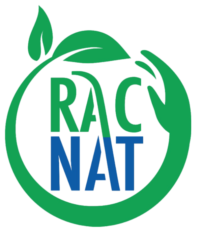At the Research, Advisory and Capacity building Facility on New Adaptation Technologies (RAC/NAT), the aim is to facilitate the identification and evaluation of agricultural technologies in the form of inputs or practices that enhance productivity and resilience in specific agro-ecological zones, farming systems in the Region as well as aquaculture practices.
While there is a myriad of technologies available that have the potential to be effective, it is difficult to vouch for the adaptability in microclimates with varying characteristics. As such, RAC/NAT trials would serve as a model for testing the effect of technologies and ultimately aid the sector in making an informed decision with real-time regional data.
The facility is currently undertaking two research trials
- Moruga Hot Pepper Trial
- Biofloc Aquaculture Shrimp Farming
Moruga Red Hot Pepper Trial
The crop of choice for the first trial of its kind at the RAC/NAT facility, Orange Grove, is hot peppers. Hot pepper (Capsicum chinense Jacq) is a crop grown in the humid tropics that has the potential to be a viable commercial commodity, especially considering the demand on the international scale. The regionally renowned “Scotch Bonnet” and “Moruga Red” cultivars are preferred by consumers in the USA, UK, and Canada due to their shape, color, pungency and flavour profile, which further exemplifies the potential of the crop as an export commodity.
Over time, many issues have been encountered in production when attempting to increase yields that are more indicative of the full genetic potential of the crop. While research has been done on different aspects of growth and management in an attempt to increase production, the sector remains desirous of methods that would not only help to maximize yields, but also preserve the health of the soil and integrity of the environment.
The trial is using various treatments to improve yield such as plant biostimulants which are substances or microorganisms that stimulates the natural processes of the plant to enhance or benefit nutrient uptake, nutrient use efficiency, tolerance to abiotic stress, or crop quality and yield. In additional to plant biostimulants, granular fertilizer application at different rates will also be tested as well as the effects of compost on yield and its effect on overall soil health.
 |
|
Morgua Hot Pepper seedlings two weeks after germination |
 |
|
Morgua Hot Pepper seedlings 25 days old |
Biofloc Aquaculture Shrimp Farming
RAC/NAT choose the Biofloc technology to explore shrimp farming as it is a sustainable aquaculture technique that involves the cultivation of beneficial microorganisms to maintain water quality in aquaculture systems. The Biofloc technology has the potential to enhance aquaculture productivity by providing a controlled environment that supports optimal growth conditions for the cultured species. Biofloc technology compared to the traditional aquaculture systems, is often considered more environmentally sustainable due to reduced water usage and effluent discharge, as well as lower reliance on external feed inputs.
Biofloc refers to dense colonies of microorganisms, such as bacteria, algae, and protozoa, that aggregate in the water column or on surfaces within the aquaculture system. These microorganisms help to recycle nutrients, particularly nitrogenous compounds like ammonia and nitrate, which are excreted by the aquatic animals (such as fish or shrimp) being farmed. They convert harmful ammonia into less toxic forms like nitrate, which can be utilized by the organisms in the system.
Once a high density of these microbial aggregates are maintained the biofloc system can effectively manage water quality parameters such as dissolved oxygen, pH, and suspended solids. This reduces the need for water exchange and minimizes the discharge of effluents into the environment.
 |
|
Biofloc aquaculture facility building under construction |


